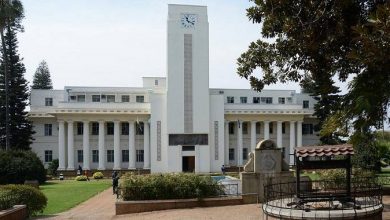‘Zimbabweans fast losing hope in the new dispensation’

Zimbabweans, who had hoped that the change of leadership in November 2017 would usher in a new governance system in the Southern African country, are now losing hope in the ‘new dispensation’, a top United Nations envoy has said.
In November 2017, the military toppled Zimbabwe’s longtime leader, the late former president Robert Mugabe, ending his 37 years rule.
Mugabe’s successor, President Emmerson Mnangagwa, ushered in, what his ZANU-PF party termed ‘new dispensation and the second republic’, assuring citizens of a breakaway from the past repressive era.
However, nearly two years down the line since Mnangagwa took over the reins at State House, Zimbabwe appears to be in a far worse situation than it was in 2017.
UN Special Rapporteur on the rights to freedom of peaceful assembly and of association, Clement Nyaletsossi Voule, who was in the country last week said Zimbabweans’ hopes on the Mnangagwa’s administration in improving the country’s political and economic situation were fast fading away.
Voule was in the country from 17 to 27 September to assess the human rights situation at the invitation of the government.
The special envoy said there was no doubt that Zimbabweans were eagerly awaiting a significant improvement in the quality of their lives, but cast doubt on the government’s readiness to on deliver that.
“Albeit the common belief that a transformation will come, I believe that the long-awaited hopes are fading,” said Voule in his preliminary report.
“The population is now questioning the government’s capacity to bring about such changes.
They feel they have not experienced concrete and tangible results. On the contrary, I have perceived from my different meetings around the country, that there is a serious deterioration of the political, economic and social environment since August 2018 resulting in fear, frustration, and anxiety among a large number of Zimbabweans.”
During his 10-day visit, Voule met with various stakeholders in Harare, Bulawayo, Hwange, Mutare, Arda Transau and Marange.
Voule said he was disturbed by the government’s lack of commitment in doing away with laws that inhibit freedom of assembly and association in Zimbabwe.
“I am also concerned that the MOPO (Maintenance of Peace and Order) Bill contains notification requirements for certain gatherings, including cumbersome administrative processes – that amount to an authorisation, not a notification regime,” he expressed his displeasure.
MOPO, once passed into law, is set to repeal the draconian Public Order and Security Act (POSA).
“It is also of concern that spontaneous assemblies are not protected in the bill (MOPA), which does not recognize the right of individuals to engage, in spontaneous public gatherings.
“I have requested to be briefed on how the notification procedure is implemented in practice in different provinces and found that it is extremely burdensome in terms of administrative requirements but also very intrusive in its demands, undermining the exercise of this fundamental freedom for public gatherings and private meeting,” added Voule.





